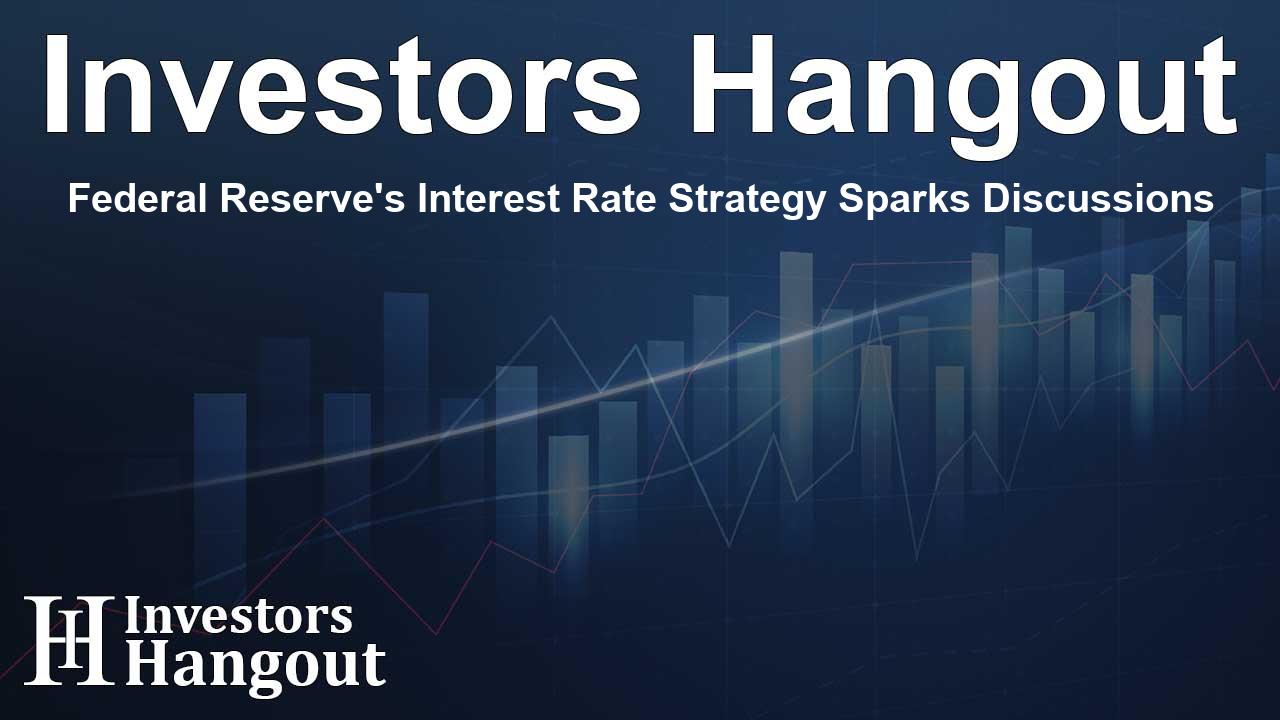Federal Reserve's Interest Rate Strategy Sparks Discussions

Understanding the Federal Reserve's Interest Rate Strategy
The recent discussions by the U.S. Federal Reserve regarding interest rate adjustments are drawing considerable attention. As inflation appears to plateau without substantial decline, the decisions made by the Federal Reserve become increasingly critical for investors and the general public. According to insights from Morgan Stanley Wealth Management's chief investment officer, Lisa Shalett, the Fed is poised to continue cutting interest rates in the upcoming months, although the current economic landscape presents challenges.
Current Economic Indicators
Investment strategies are being recalibrated as economic indicators evolve. For instance, the labor market exhibits mixed signals, prompting the Federal Reserve to consider a careful approach. Policymakers are no longer fixated on reaching a 2% inflation target, signaling a possible shift in monetary policy priorities. Shalett emphasizes that recent polling data indicates a tight race nearing the upcoming U.S. presidential election, further complicating economic forecasts.
Impact of Inflation on the Market
The intersection of inflation expectations and interest rate changes is palpable in equity and bond markets. As noted by Shalett, while equity markets may not have fully absorbed the implications of these monetary policy signals, the bond market appears to be adjusting to higher inflation expectations. The recent uptick in consumer prices and stagnant producer prices illustrate the ongoing volatility that traders must navigate.
Market Responses and Predictions
With market traders estimating a significant likelihood of a 25 basis-point rate cut during the Federal Reserve's policy meeting, it is imperative to understand how this influences investor sentiment. Instead of anticipating a drastic half-point cut, the financial landscape is redirecting focus toward strategic asset placements amidst these fluctuations.
Investment Strategies Moving Forward
Experts advise diversifying portfolios through what they describe as "real assets," which include commodities, gold, and real estate. These assets are perceived as safe havens against increasing market volatility. Moreover, Shalett mentions that market-neutral hedge fund strategies could offer additional stability during uncertain times.
Political Factors Affecting Economic Decisions
The proximity of the U.S. presidential election adds another layer of complexity. With significant figures such as Democratic Vice President Kamala Harris and former President Donald Trump in a virtual tie across battleground states, uncertainty looms over financial markets. This scenario suggests that investor reactions may fluctuate based on evolving political narratives in the lead-up to the election.
The Road Ahead for Investors
As theFederal Reserve prepares for its upcoming policy meeting, the discussions surrounding interest rates and inflation take center stage. Investing in current economic conditions requires agility and a thorough understanding of market sentiments. Caution is advised, as mixed signals from the labor market and impending political events could shift the dynamics at any moment.
Frequently Asked Questions
What factors are influencing the Federal Reserve's decision on interest rates?
The Federal Reserve is balancing its approach due to mixed labor market signals and stabilizing inflation, affecting its strategy on interest rate cuts.
How should investors respond to potential interest rate cuts?
Investors are encouraged to consider diversifying their portfolios with real assets like gold and commodities to mitigate volatility.
Why is the upcoming presidential election critical for economic forecasts?
The tight race between candidates creates uncertainty, which can influence market stability and investment decisions significantly.
What are "real assets" and why are they recommended?
Real assets include tangible items like real estate and commodities, seen as safer investments during times of market turbulence.
How can market-neutral strategies benefit investors?
Market-neutral hedge fund strategies provide a buffer against market swings, allowing investors to maintain positions without heavy exposure to market volatility.
About Investors Hangout
Investors Hangout is a leading online stock forum for financial discussion and learning, offering a wide range of free tools and resources. It draws in traders of all levels, who exchange market knowledge, investigate trading tactics, and keep an eye on industry developments in real time. Featuring financial articles, stock message boards, quotes, charts, company profiles, and live news updates. Through cooperative learning and a wealth of informational resources, it helps users from novices creating their first portfolios to experts honing their techniques. Join Investors Hangout today: https://investorshangout.com/
Disclaimer: The content of this article is solely for general informational purposes only; it does not represent legal, financial, or investment advice. Investors Hangout does not offer financial advice; the author is not a licensed financial advisor. Consult a qualified advisor before making any financial or investment decisions based on this article. The author's interpretation of publicly available data shapes the opinions presented here; as a result, they should not be taken as advice to purchase, sell, or hold any securities mentioned or any other investments. The author does not guarantee the accuracy, completeness, or timeliness of any material, providing it "as is." Information and market conditions may change; past performance is not indicative of future outcomes. If any of the material offered here is inaccurate, please contact us for corrections.